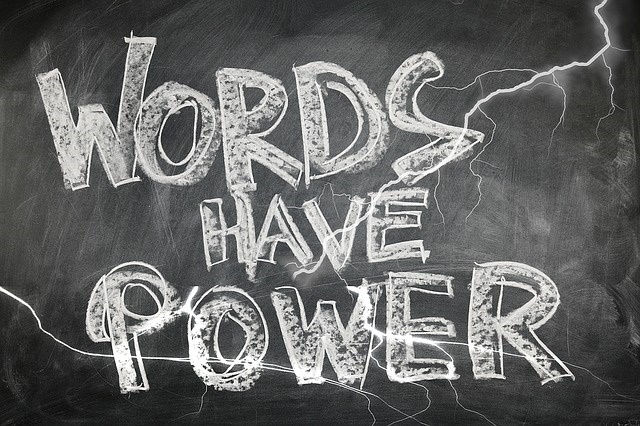Using the power word “because” in your business

As Internet entrepreneurs, we often encounter the power word “because.” When someone says, “Why do you spend so much time and effort, wouldn’t getting a job be easier?” we’re in “fight mode” with all of our because reasons.
- we want our own businesses
- we want to help people
- we believe we can make a difference
- people need what we have to offer
Validation
Using because here is a power word of validation. We have all sorts of reasons ready to counter anyone who challenges us or our business with “why” questions.
Magical and Deceptive
There’s also its use as a magical or deceptive power word depending on your point of view.
In the late 1970’s, a Harvard professor of psychology, Ellen Langer, ran a behavioral study where people waiting on a copier machine line, were interrupted by someone asking to go ahead of them. Their success in skipping ahead was based on how the question was phrased. When their request included the word because followed by a reason (no matter how insignificant or significant) agreement was greater. (see video below from Jeremy Pound of Juicy Results).
Now, granted the 70’s was a time of greater personal civility, and it would be fair to ask if the results would be the same today. But, for us Internet entrepreneurs, this key change in behavior has less to do with a physical request and more to do with its effectiveness as a magical means of persuasion.
Those who were early to catch on to its value were advertisers and motivational trainers like Dale Carnegie, How to Win Friends and Influence People and Robert Cialdini, Influence: The Psychology of Persuasion. Cialdini, promotes the idea of when people are presented with a reason by someone else, they are more inclined to respond to the person’s request for a favor.
Salespeople, advertisers, and copywriters found this to be one of the magical power words of persuading a person to move from a position of no action to a point of consideration, to actual purchase.
To others, it’s a deceptive sales technique. It takes advantage of how people respond to certain language patterns over others. Since people appear to have a higher compliance rate to the power word because it’s viewed as a covert effort to influence the behavior of unsuspecting customers.
Our brain desires to know the why of things because. Click To Tweet
How Your Brain Sees the Power Word “Because”
 That brings us to another way to view because that few of us are aware of. And, that is from a brain perspective. Our brain cells respond to the word in three different ways.
That brings us to another way to view because that few of us are aware of. And, that is from a brain perspective. Our brain cells respond to the word in three different ways.
First, our brain is entrained to immediately alert to the word because. Some believe we are conditioned from childhood when we pestered our parents with unending why questions. Up until the point they tolerated us, but when they had enough, it became “because I said so!” We now had an embedded, irrefutable reason.
Other believe it’s more complicated. But, whatever the reason that connects the neurons to the word because it seems to link what‘s requested with what’s to come. Strangely, even if the subsequent reason isn’t very strong, the brain is willing to be more compliant as indicated by the Langer studies.
Second, the brain likes to fill in the blanks. Whether it’s in the form of a question, a desire or a curiosity, our brain constantly attempts to fill in the blanks of why questions.
- Why did this happen?
- Why did she do that?
- Why am I not more successful?
It seems there’s only peace of mind when because is followed by some plausible explanation or answer.
Third is justification. There’s mental comfort in knowing that you can justify taking action because of supportive reasons that personally make sense.
Consequently, our brain is very attuned to picking up on the word, as well as, needing to make sure there’s some form of completion and justification with what comes after because.
What does “because” mean for your business?
When it comes to your business being profitable, the question that needs to be answered is “Why should I buy from you?” Your because reasons are your action converters. Because …
- The brains of your audience are already inherently primed to be because receptive.
- By incorporating credibility and social proof, you have added because reasons to trust you.
- It means making it easier to introduce life enhancing changes with because explanations.
- Using a because reason strengthens each benefit of your product or service.
- It makes your Call to Action more effective. Customers are more likely to buy when given clear and justifiable because reasons that speak to them.
The author Magda Kay in Psychology for Marketers also suggests providing a reason when –
- giving a promotional discount, or free or special offer
- you are unable to meet a customer’s expectations
- there are problems related to product satisfaction
- you want your audience to understand your mission
“… what is the bigger reason why you do what you do. Doing so will make people feel like they are contributing to that mission and doing more for the greater good.”
As Internet entrepreneurs, we have the opportunity to be upfront with our readers. We can give them our best because reasons and still feel that we can maintain our integrity when adding that dollar sign.
What because reasons do you use for getting people to engage with you on your website?
Sources:
http://www.artofblog.com/because-a-power-word/
https://blog.crazyegg.com/2016/01/12/62-power-words-help-sell/
http://psychologyformarketers.com/power-of-because/
Images: Pixabay 1106649 and 1293313